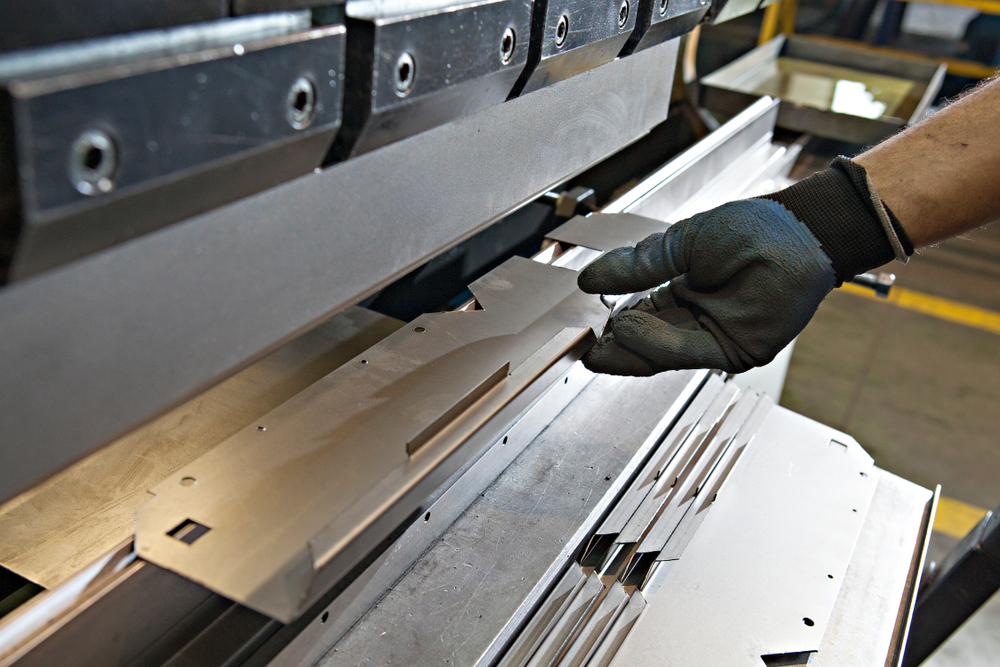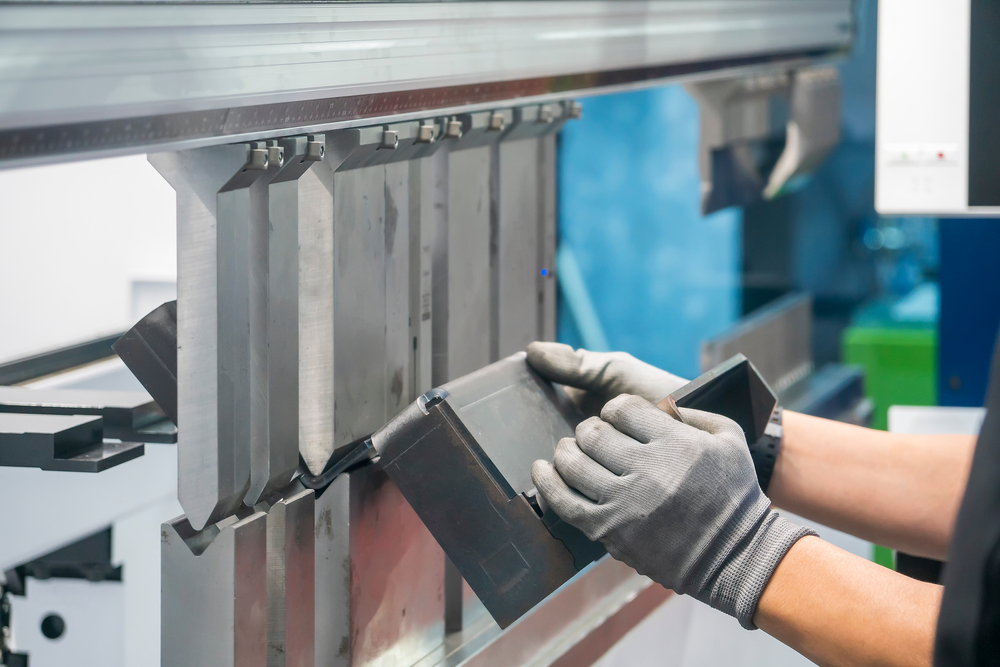A Press Brake Operator specializes in managing and operating press brake machines—essential equipment in the fabrication process that bends and shapes sheet metal. These operators play a pivotal role in industries such as automotive, aerospace, and heavy machinery, where precision metal shaping is crucial. The position requires both technical knowledge and physical aptitude, as operators need to handle complex machinery and heavy materials.
Essential Functions of a Press Brake Operator
Press Brake Operators are responsible for:
- Setting up and operating press brake machines: Adjusting machine settings for specific jobs, changing tools, and performing tests runs to ensure accuracy.
- Reading blueprints and plans: Interpreting detailed instructions and technical drawings to determine job requirements and the correct process for fabrication.
- Quality control: Checking the accuracy of bends and measurements, ensuring that finished pieces strictly conform to specifications, and making adjustments as necessary.
- Maintenance: Performing routine checks and maintenance on machinery to ensure optimal performance and to prevent malfunctions.
- Safety management: Adhering to strict safety standards to avoid accidents, including wearing protective gear and ensuring that all safety measures are in place during machine operation.
Educational Pathways
High School Education
The basic educational requirement for becoming a Press Brake Operator is a high commercial operator’s diploma or a GED. High school students interested in this career path are advised to focus on subjects like mathematics, physics, and any available courses in industrial technology or metalwork.
Vocational and Technical Training
Although not always required, completing a vocational or technical training program in machine operation, metal fabrication, or a related field can significantly enhance employability and potential earnings. These programs typically offer both theoretical and hands-on training in areas such as:
- Machine shop mathematics
- Blueprint reading and interpretation
- Metallurgy and material science
- Safety and quality control procedures
Certification
While certification is not mandatory, it can validate an operator’s skills and knowledge, making them more attractive to employers. Certifications can be obtained through various professional bodies, including the Fabricators & Manufacturers Association, International (FMA). These certifications often require passing a proficiency examination and periodically renewing the certification through continued education or re-examination.
Skills and Qualities of a Successful Press Brake Operator
- Technical proficiency: Understanding of machinery and its maintenance, as well as proficiency in reading technical documents.
- Attention to detail: Ability to focus on the task at hand and ensure all aspects of the job meet strict standards.
- Mathematical skills: Aptitude for precise measurements and adjustments to ensure accurate fabrication.
- Physical stamina and strength: Capability to manage physical demands of the job, including handling heavy materials and standing for long periods.
- Problem-solving abilities: Skill in identifying issues and determining the most effective solutions to ensure continuous production.
- Safety-oriented mindset: Commitment to maintaining a safe work environment and adhering to all safety guidelines and regulations.
Steps to Become a Press Brake Operator
- Complete high school or equivalent: Obtain a high school diploma or GED.
- Pursue technical education (optional but recommended): Enroll in a vocational training program related to metal fabrication or machine operation.
- Gain hands-on experience: Start with entry-level positions in metalworking or manufacturing to gain practical experience. Consider an apprenticeship program to receive structured on-the-job training.
- Obtain certification: Enhance your qualifications by getting certified through a recognized industry organization.
- Seek employment: Apply for positions as a Press Brake Operator in various industries like manufacturing, automotive, or construction.
- Continue learning: Stay updated with the latest technology and practices in metal fabrication. Consider additional training or education to advance in your career.
Career Outlook and Advancement
The demand for skilled Press Brake Operators is steady, reflecting the ongoing need for fabricated metal products across various sectors. According to the Bureau of Labor Statistics (BLS), employment in this field is expected to grow at an average rate, with opportunities being particularly favorable for those who have undergone formal training and certification.
Experienced operators may advance to supervisory roles or move into related areas such as machine maintenance, operations management, or quality control. Continuous professional development and specialization can lead to higher pay and more significant responsibilities.
Salary Expectations
Salaries for Press Brake Operators vary based on geographical location, experience, and industry. On average, entry-level positions might offer salaries from $30,000 to $40,000 annually, while experienced operators can earn between $40,000 and $55,000. Factors such as overtime and shift differentials can also affect earnings.
Challenges and Rewards
Challenges: The role can be physically demanding and requires a high level of precision and concentration. Operators must also adhere to strict safety protocols to avoid injuries.
Rewards: This career offers the satisfaction of creating tangible products and contributes to critical sectors of the economy. It also provides opportunities for continuous learning and advancement within the field.

Impact of Technology on Press Brake Operation
Technological Advancements in Press Brake Machinery
The field of metal fabrication is continuously evolving with technological advancements that significantly impact the role of a Press Brake Operator. Modern press brakes are equipped with CNC (Computer Numerical Control) technology, which allows for more precise bends, higher efficiency, and less physical strain on the operator. Operators must be adept at programming and operating these CNC machines to optimize production and maintain competitiveness in the market.
The Importance of Staying Updated
As technology progresses, ongoing training becomes crucial. Operators need to stay informed about the latest technological trends and techniques in metal forming and bending. Employers often sponsor training sessions to ensure their workforce is proficient with new equipment and software, highlighting the importance of a proactive learning attitude in this career.
Work Environment and Safety Standards
Daily Work Environment
Press Brake Operators typically work in manufacturing plants or workshops. These environments are structured to maximize productivity and safety but can also be noisy and bustling. Operators might work in shifts, including nights and weekends, depending on the company’s production needs. Being comfortable in such settings is essential for anyone considering this career path.
Adhering to Safety Standards
Safety is paramount in the role of a Press Brake Operator due to the potential hazards associated with operating heavy machinery. Comprehensive training in safety practices, such as the proper use of personal protective equipment (PPE), emergency procedures, and machine maintenance, is mandatory. A safe work environment not only protects the operators but also ensures consistent production without costly interruptions due to accidents.
Professional Development and Continuing Education
Benefits of Continuous Learning
In a technically demanding field like press brake operation, professional growth is often linked to an operator’s willingness to learn and adapt. Continuing education can take various forms, from formal coursework to attending industry seminars and workshops. These opportunities not only enhance an operator’s skills but also broaden their understanding of the industry, potentially opening doors to new career opportunities.
Pathways for Further Education
Operators interested in advancing their careers can pursue further education in fields such as mechanical engineering, industrial technology, or business management. Such qualifications can prepare an operator for roles in management, operations planning, or even starting their own metal fabrication business. Additionally, many community colleges and technical schools offer courses specifically designed to upgrade the skills of manufacturing personnel, ensuring they remain valuable assets to their employers.
Real-World Applications of Press Brake Operations
Automotive Industry
In the automotive industry, press brake operators are essential for manufacturing various components, including body panels, chassis parts, and structural components. The precision required in these parts ensures that vehicles are both safe and functional. Operators must understand the specific material properties and stress tolerances required for automotive parts, making their role critical in maintaining quality and safety standards.
Aerospace Sector
The aerospace sector demands the highest levels of precision and quality due to the stringent safety and performance requirements of aircraft components. Press brake operators in this industry work with advanced materials like titanium and aluminum alloys, which require specialized knowledge and techniques to form correctly. Their expertise directly contributes to the safety and efficiency of aircraft, underscoring the importance of skilled press brake operation in high-stakes industries.
Construction and Infrastructure
Press brake operators also play a significant role in the construction and infrastructure sectors, where they fabricate parts for buildings, bridges, and other structures. This includes producing components like beams, brackets, and custom metal fixtures. The ability to produce precise and durable parts is crucial for the structural integrity and longevity of these projects, highlighting the operator’s contribution to public safety and urban development.
The Role of Innovation in Press Brake Operations
Advancements in Tooling
Innovation in tooling has significantly impacted press brake operations. Modern tooling solutions include precision-ground tooling and segmented tooling, which allow for faster changeovers and greater flexibility in production. These advancements reduce downtime and increase the efficiency of the fabrication process, making it essential for operators to stay updated with the latest tooling technologies.
Software Integration
The integration of advanced software with press brake machines has transformed the way operators work. CAD (Computer-Aided Design) software allows operators to create detailed models and simulations of parts before production, ensuring accuracy and reducing material waste. Additionally, CNC software enables operators to automate complex bending sequences, increasing consistency and throughput. Mastery of these software tools is becoming increasingly important for operators looking to excel in their field.
Sustainability and Efficiency
The push towards more sustainable manufacturing practices has also influenced press brake operations. Operators are now expected to minimize waste and optimize material usage through efficient machine programming and process planning. Techniques such as lean manufacturing and Six Sigma are being applied to press brake operations to improve efficiency and reduce environmental impact. Operators who are knowledgeable about these practices can contribute to more sustainable production processes and help companies meet their environmental goals.
Tips for Success as a Press Brake Operator
Developing a Keen Eye for Detail
Success as a press brake operator hinges on attention to detail. Operators must carefully inspect each piece for accuracy and quality, identifying any defects or deviations from specifications. Developing a meticulous approach to quality control can prevent costly errors and ensure that all parts meet the required standards.
Effective Communication Skills
Strong communication skills are essential for press brake operators, who often work as part of a larger production team. Effective communication with supervisors, engineers, and other team members ensures that any issues are promptly addressed and that the production process runs smoothly. Clear communication is also crucial for understanding job orders and conveying any technical difficulties encountered during operations.
Embracing a Safety-First Mindset
A safety-first mindset is critical in this profession. Operators should be proactive in identifying potential hazards and committed to following all safety protocols. Regularly attending safety training sessions and staying updated on best practices can help operators maintain a safe working environment, protecting themselves and their colleagues from harm.
Continuous Improvement
Adopting a mindset of continuous improvement can significantly enhance an operator’s career prospects. This involves regularly seeking out new learning opportunities, whether through formal education, on-the-job training, or self-study. Staying abreast of industry trends and innovations ensures that operators remain valuable assets to their employers and can advance in their careers.
Frequently Asked Questions (FAQ)
What is the best way to start a career as a Press Brake Operator?
Start with a high school diploma or GED, followed by technical training in metal fabrication or related fields. Hands-on experience through jobs or apprenticeships is also highly beneficial.
Are there any specific safety concerns for Press Brake Operators?
Yes, the job involves operating heavy machinery, so adherence to safety protocols is crucial to prevent accidents and injuries.
How can I advance in my career as a Press Brake Operator?
Gaining experience, obtaining certifications, and pursuing further education can lead to advanced roles such as supervisory positions or specialized technical roles.









